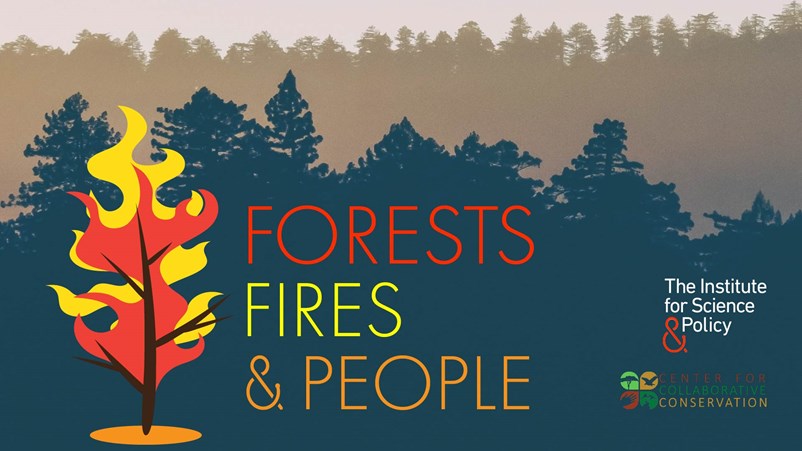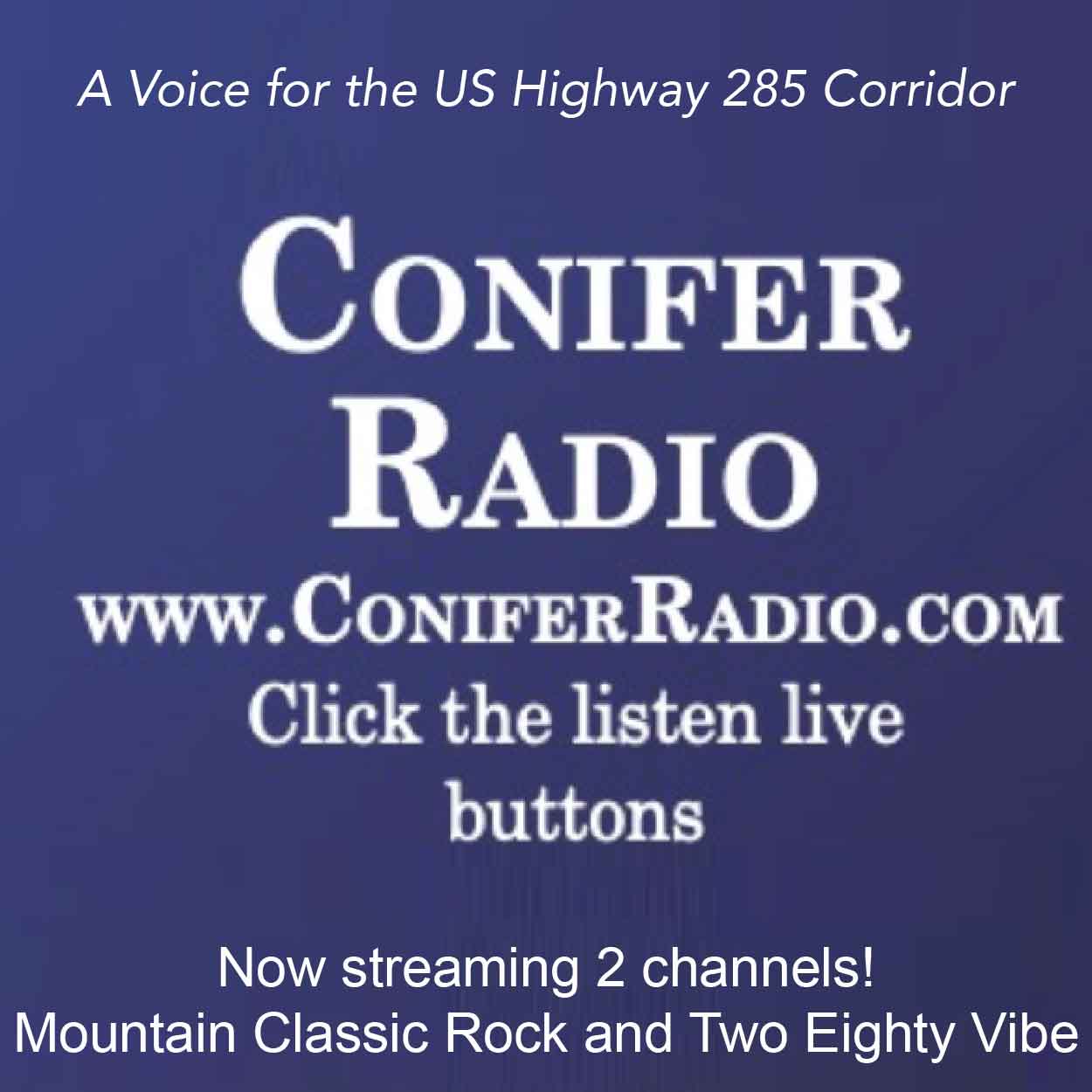Calendar
Forests, Fires, and People
A four-part webinar series presented by the Institute for Science and Policy and the Center for Collaborative Conservation
Sponsored by Gates Family Foundation
March 22, March 29, April 5, and April 12 at 5 p.m. MT
Register here for the series

The western United States has entered a new era of wildfires, no longer limited to a single distinct “season,” but rather a year-round burn regime due to hotter, drier conditions and increased human settlement in wildland areas. Forest management is a complex societal question inextricably linked to science, policy, and culture. The reality of living with bigger, more destructive blazes brings challenging tradeoffs around regulation, jurisdiction, risk tolerance, funding, mitigation, and forest health. How can stakeholders better work together to create sustainable and equitable solutions for all?
In our new four-part webinar series, we’ll hear wide-ranging conversations from around the region around the decisions, impacts, and stewardship principles that guide our collective approach to forest management and fire. Each episode will feature diverse voices and perspectives focused on exploring potential solutions and finding common ground.
Forests, Fires, and People is presented by the Institute for Science and Policy and the Center for Collaborative Conservation, with support from Gates Family Foundation in partnership with the Denver Museum of Nature and Science, the Colorado Forest Restoration Institute, the Southern Rockies Fire Science Network, the Colorado State Forest Service, and the Climate Adaptation Partnership.
The series will be recorded and livestreamed on the Institute’s Facebook and YouTube channels. Subscribe now to receive notifications when new episodes become available.
Part One: Kindling & Sparks
March 22, 5 p.m. MT
Watch the full episode
Wildfires are a natural phenomenon and have long played a key role in promoting the broader ecological health of forests. But for humans, living amidst fire is a delicate balancing act. As management practices have shifted away from prescribed burns and population growth has driven more settlement in wildland areas, the risk of catastrophe from any given blaze has only increased. On top of that, climate change has created hotter, drier conditions, turning already burn-prone western forests into a tinder box of available fuel just waiting for ignition. The result: a new era of larger, more destructive megafires that threaten homes and lives like never before.
Presenters: Tim Brown, Research Professor of Climatology at the Desert Research Institute, and Camille Stevens-Rumann, Assistant Professor of Forest & Rangeland Stewardship in Colorado State University’s Warner College of Nature Resources.
Part Two: The Historic Fires of 2020
March 29, 5 p.m. MT
Colorado’s three largest fires in recorded history all occurred in 2020, collectively burning more than 625,000 acres while damaging homes and costing lives. Our changing climate suggests that this devastating year may have been a glimpse into the future. Decades of population growth in the wildland-urban interface combined with regulatory policies and changes in forestry practices have left the region vulnerable to more destructive blazes, leaving policymakers and scientists with a challenging question: What have we learned, and what decisions might we consider in the future to protect ourselves and our forests?
Our four-part wildfire webinar series continues Monday, March 29 at 5 p.m. MT when we welcome Jen Kovecses, Executive Director of the Coalition for Poudre River Watershed, and Russ Schumacher, Colorado State Climatologist and Director of the Colorado Climate Center. They’ll explore the root causes and deeply personal impacts of 2020’s fires, provide firsthand accounts of the recovery, and then consider possible paths forward.
Part Three: The Human Element
April 5, 5 p.m. MT
Wildfire’s impacts are deeply personal and affect us in numerous ways. Fires destroy property and, tragically, often cost lives. They can contaminate the nearby air and water. They require significant resources in the form of mitigation funding and first responders. Fires have also been shown to have a disproportionate impact on low income households and people of color, who may be among the last to receive aid. The question of how and if humans can sustainably live in increasingly fire-prone areas is complicated and tied to cultural identity values that are often at odds. Still, shared stewardship of our forests has never been more crucial.
Tune in for part three in our ongoing wildfire conversation series on Monday, April 5 as we’re joined by Heather Hansen, journalist and author of Wildfire: On the Front Lines with Station 8, Wendy Koenig, Mayor of Estes Park, Colorado; and Christopher Roos, Professor of Anthropology at Southern Methodist University. They’ll examine the changing scope of the wildland-urban interface, consider humans’ relationship to fire through the lens of Native & Indigenous perspectives, and take stock of the very real costs of fires for people and communities. We invite you to send questions for the panelists in advance or during the live presentation.
Part Four: The Future of Western Wildfires
April 12, 5 p.m. MT









